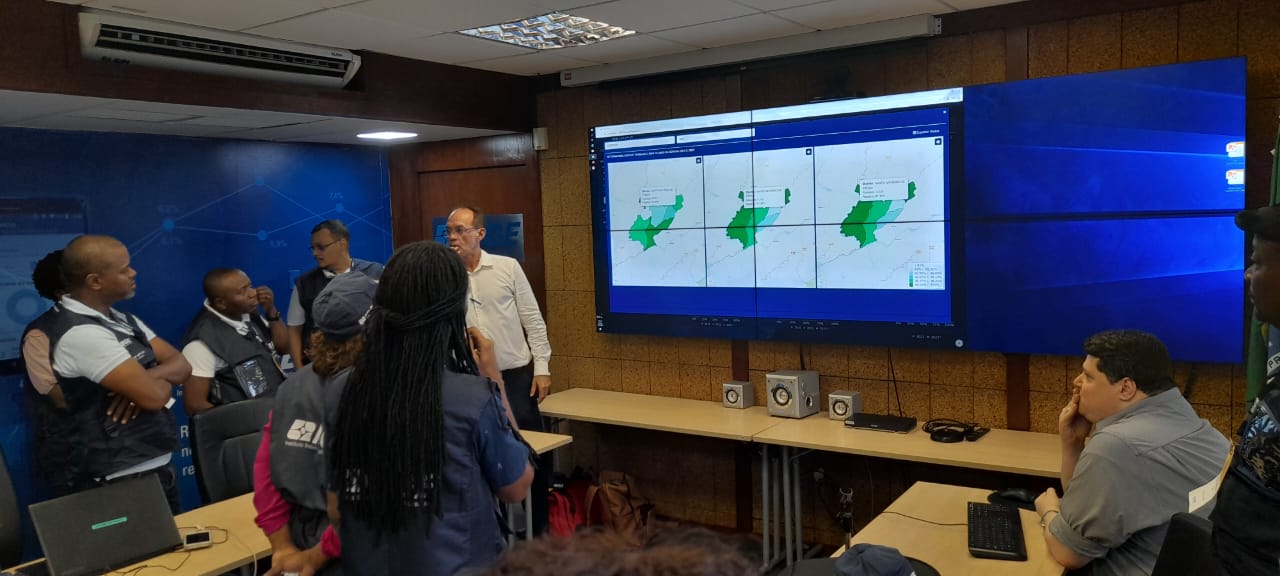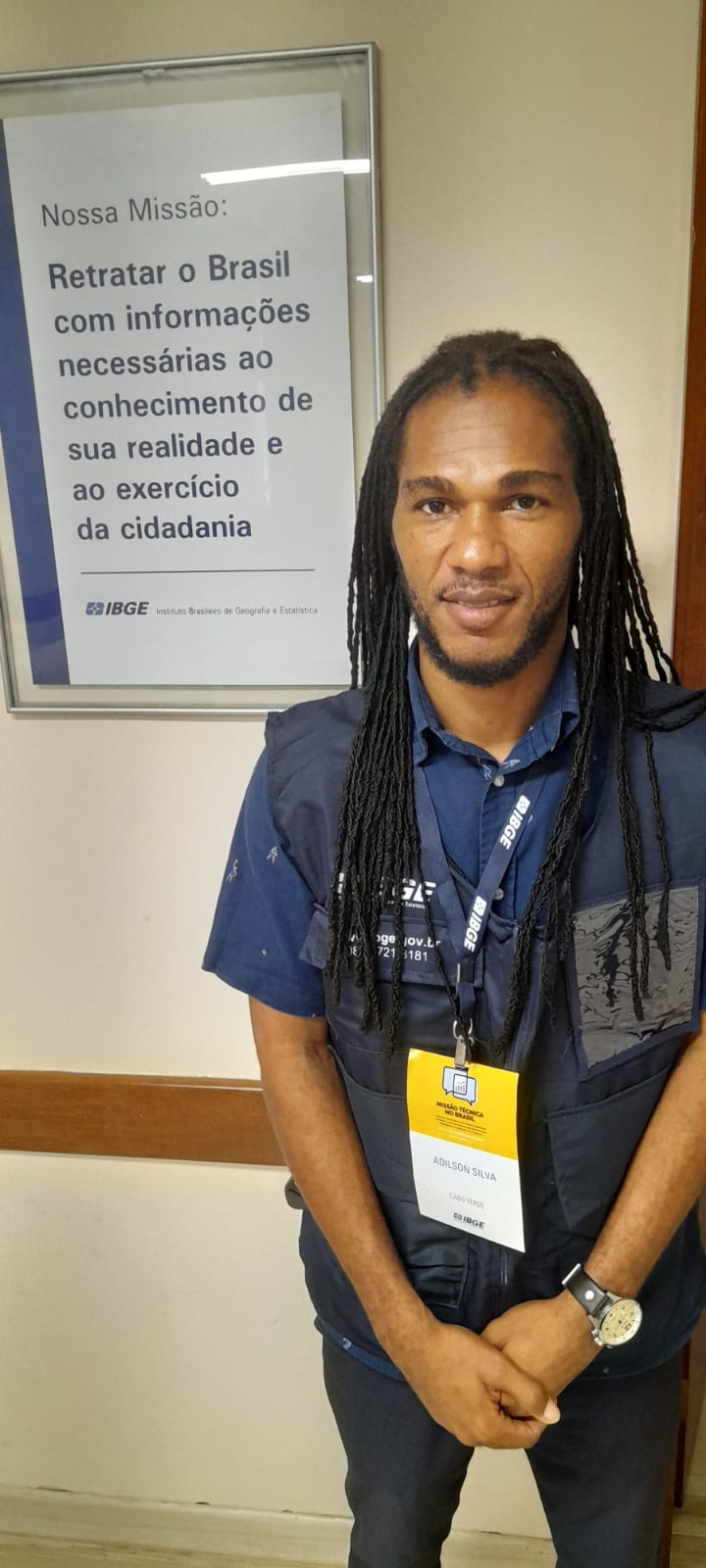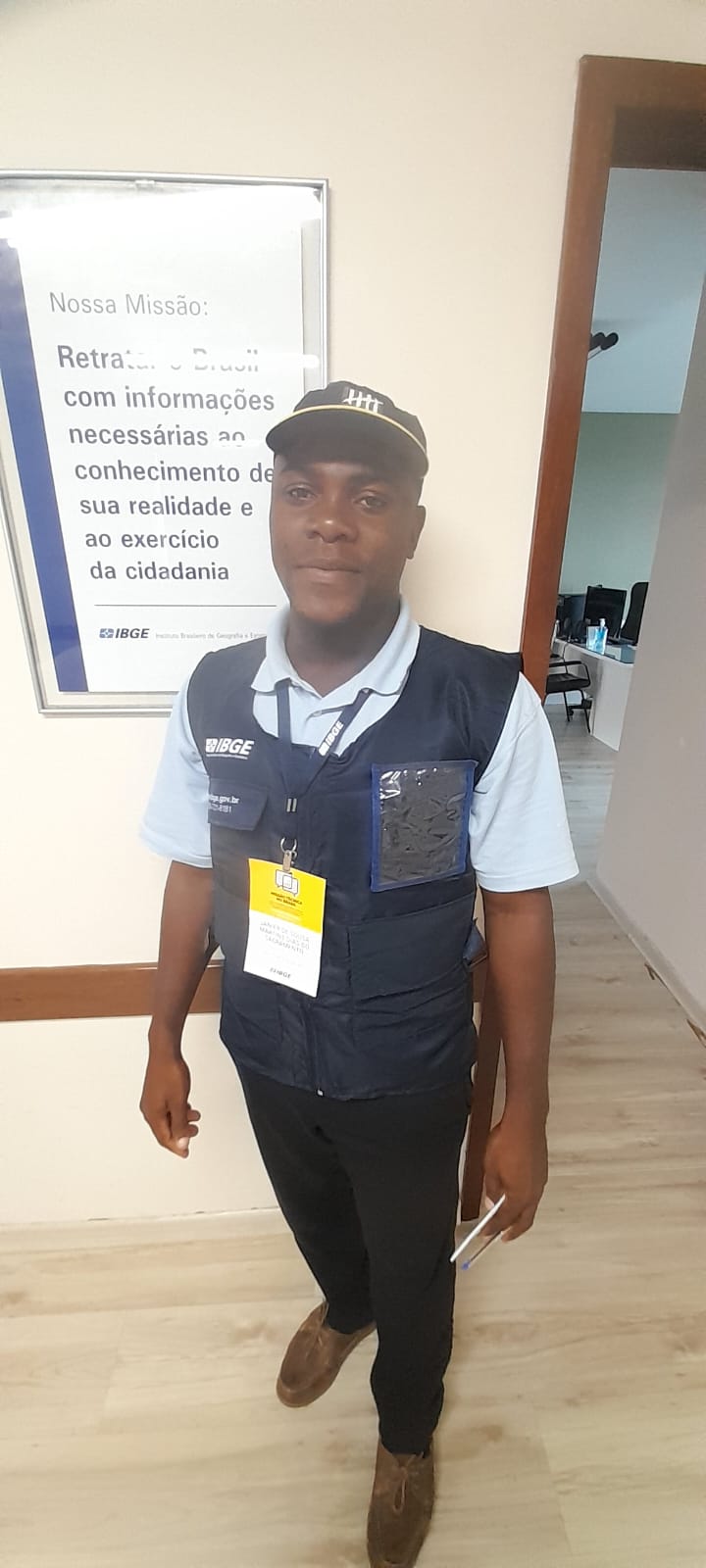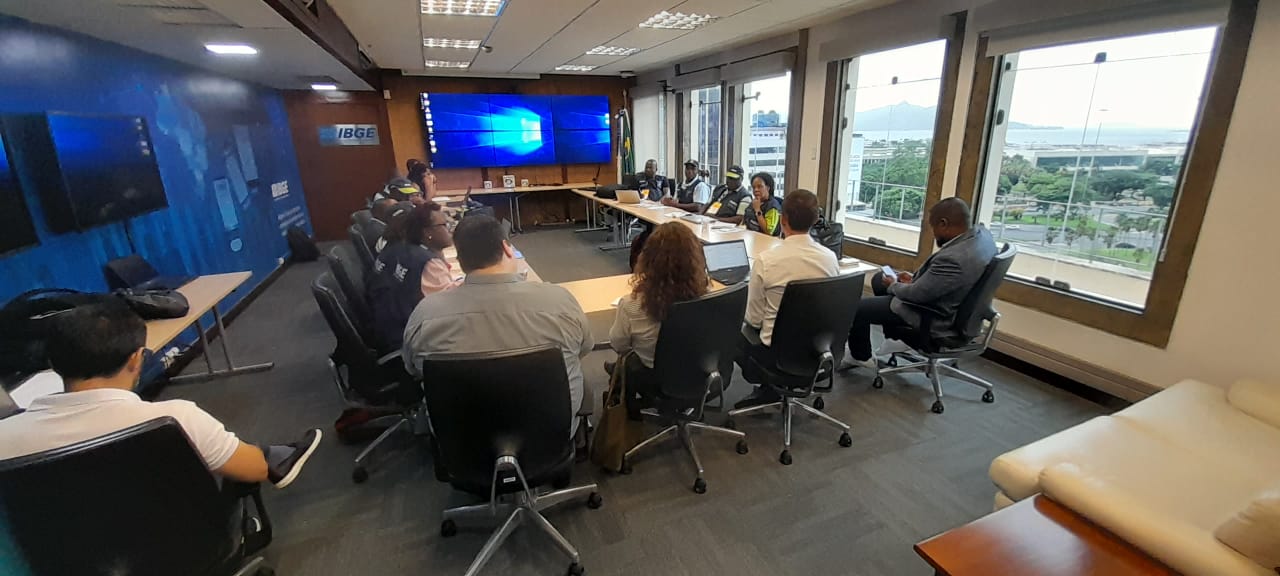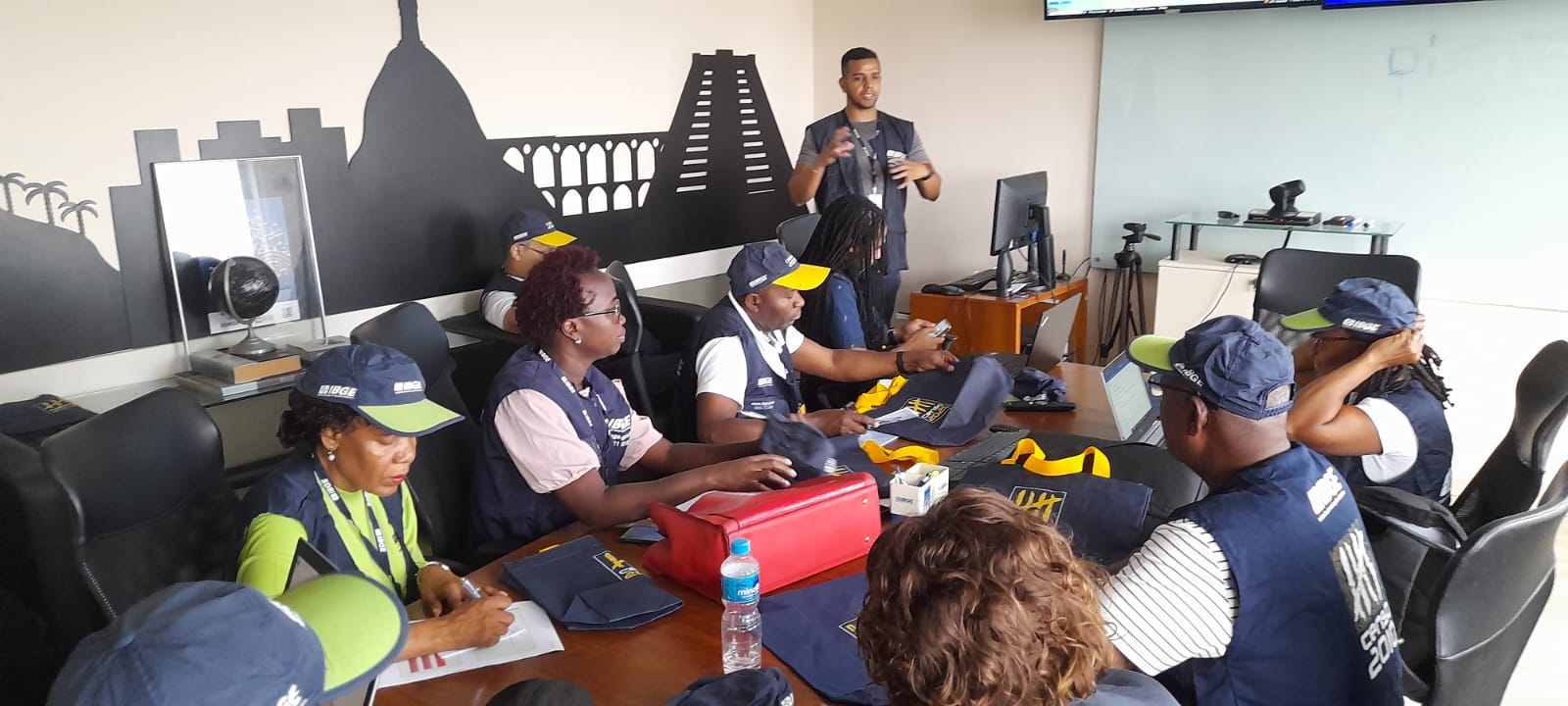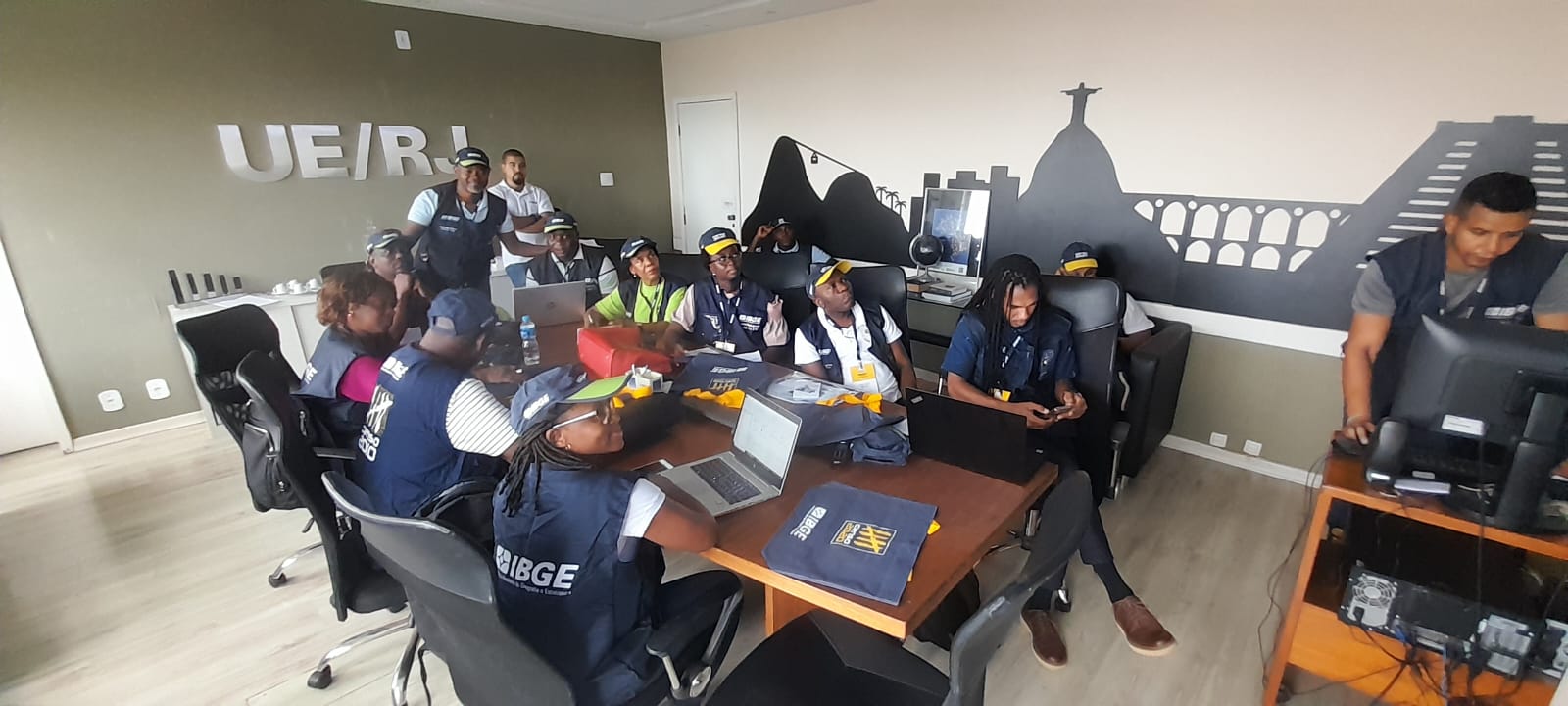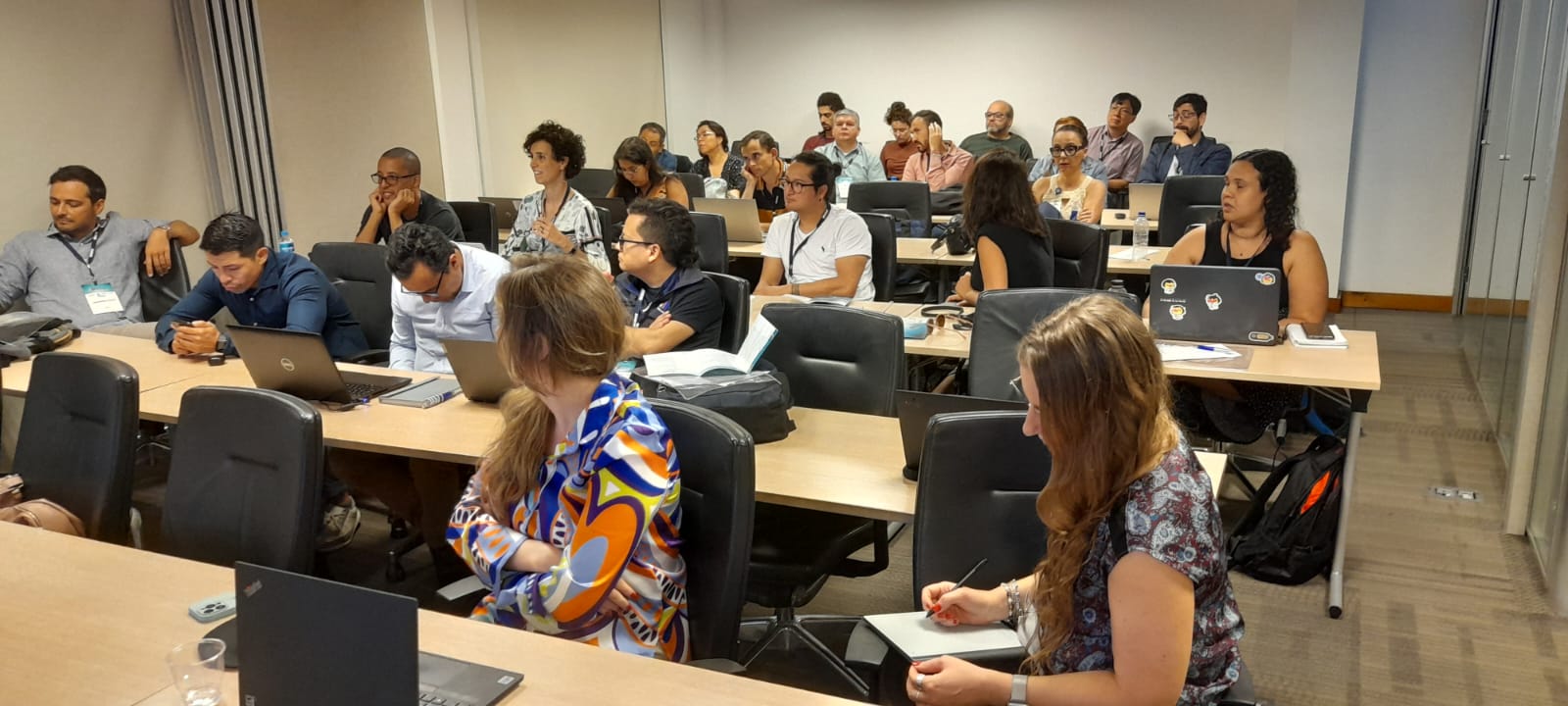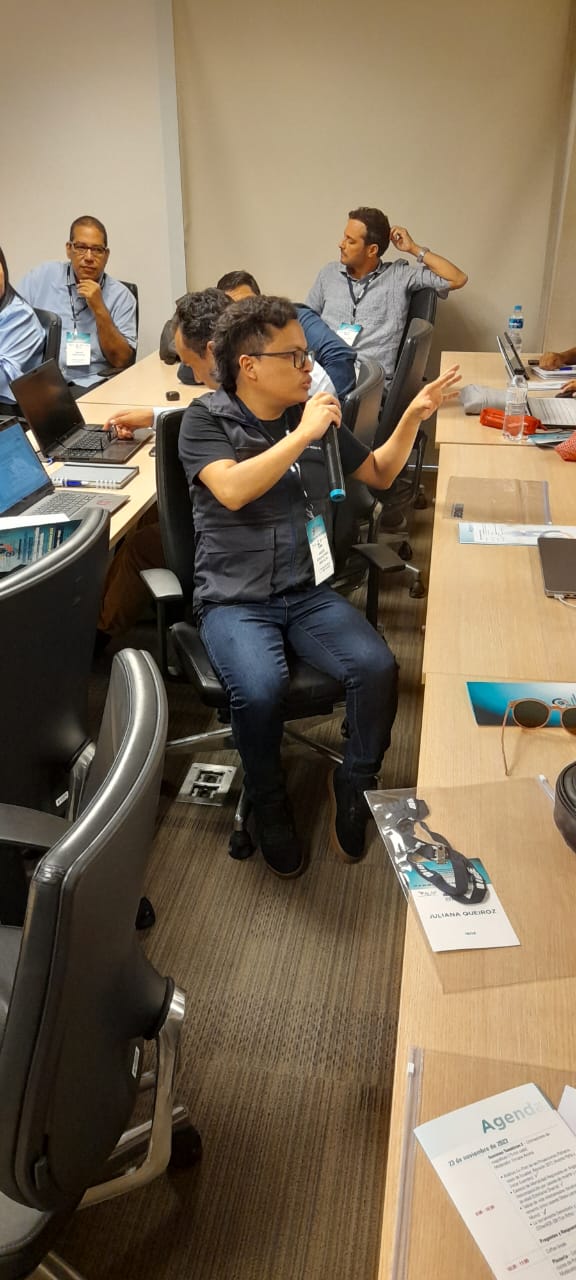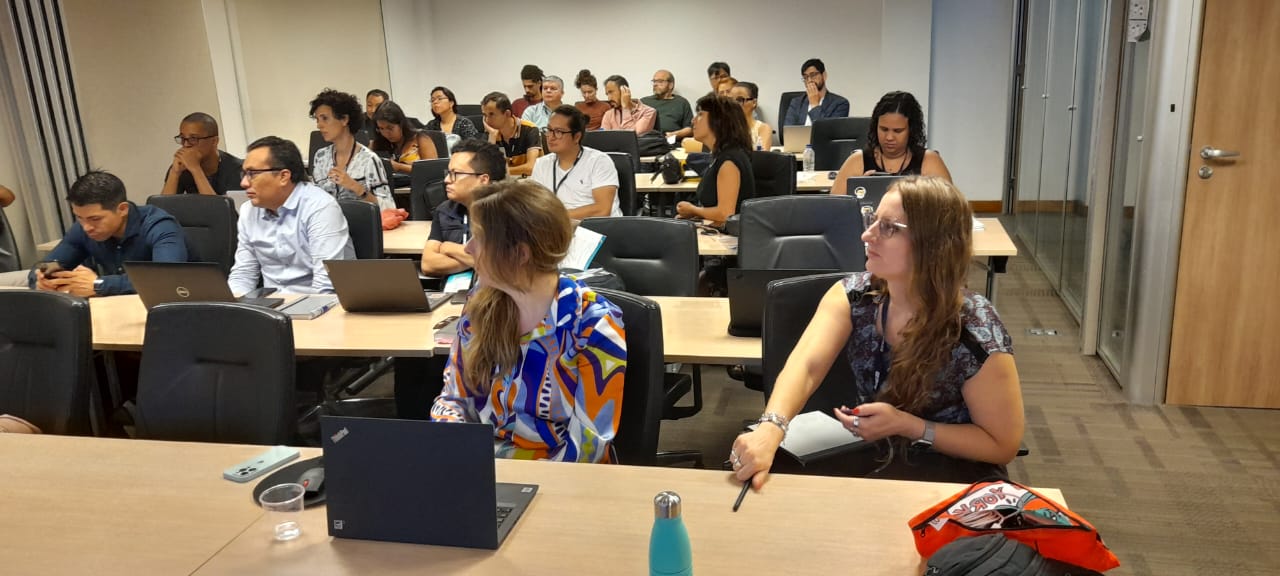International meeting
IBGE hosts meeting with Portuguese-speaking and Latin-American countries and expands its international insertion
November 28, 2023 02h30 PM | Last Updated: December 06, 2023 02h34 AM
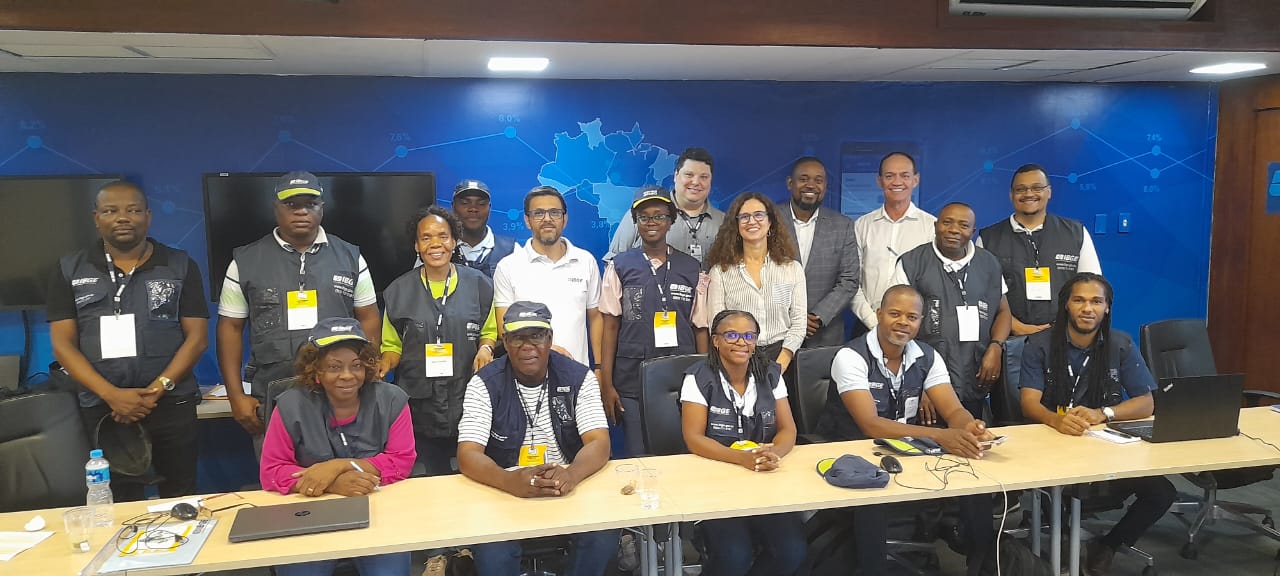 IBGE promotes meeting with Portuguese-speaking and Latin-American countries to foster its international insertion - Photo: Breno Siqueira/IBGE
IBGE promotes meeting with Portuguese-speaking and Latin-American countries to foster its international insertion - Photo: Breno Siqueira/IBGE
Two international events held at the IBGE in Rio de Janeiro and concluded last Friday, 24, reinforce the Institute’s international role and insertion. The workshop “Estimaciones de población y ronda censal 2020: Desafíos y lecciones aprendidas em tienmpos de pandemia” ("Population Estimates and the 2020 Census Round: Challenges and Lessons learned in pandemic times", our translation) presented analyses on the Censuses conducted all over Latin America. A total of 40 participants from 11 Latin-American countries attended the workshop that was held from November 21 to 24. Brazil, Chile, Costa Rica, Ecuador, Guatemala, Paraguay, Dominican Republic, Uruguay were represented by their respective survey institutes and Argentina, Mexico and Colombia sent researchers and other representatives.
Simultaneously, the “Technical Mission in Brazil – Exchanging Experiences with Portuguese-speaking countries to strengthen labor statistics” presented the IBGE survey methodology and the model of continuous surveyed on labor market to eleven participants from five Portuguese-speaking African countries, besides a representative from the International Labor Organization: Mozambique, Guinea Bissau, Equatorial Guinea, Cape Verde and Saint Thomas and Prince.
Roberto Sant’Anna, head of the IBGE Relations Department, sees the meeting as important for the IBGE not only regarding transmission of knowledge by the Institute, but also as a form of contavt with other peoples. “This entire operation, notable with Latin and Portuguese-speaking countries, within the South-South operation, are relevant because they strengthen the IBGE's international insertion with these countries and their statistical agencies. Regarding the technical mission of Portuguese speaking countries, there are also members from the Ministries of Labor in these locations, the exchange of information and good practice as essential elements to reiforce the position of the IBGE as a reference Institute in Latin America and among Portuguese-speaking countries."
“Technical Mission in Brazil – Exchanging Experiences with Portuguese-speaking countries to strengthen labor statistics”
Idel Helena, director of services for Workplacd Safety of the Ministry of public Administration and State Modernization in Guinea Bissau, mentioned the importance of the IBGE to help her country in labor market statistics. The presentations in this event will help us improve the system of labor statistics in our country,” says the director, in her first visit to Brazil.
Alice Varela, coordinator of the Labor Market Observatory in Cape Verde, highlighted the importance of listening and learning, besides establishing closer partnerships with Portuguese-speaking countries, mainly with the IBGE, a reference in the field. “We believe any sharing of experiences is a way of learning. We are here, above all, to listen, learn and establish partnerships with other PALOP countries whose observatories are better settled already, and to observe the work of the IBGE, a reference, so that, in a near future, we might start our cooperation in technical assistance, within the South-South partnership.”
Alice studied in Brazil between 2000 and 2004, in the city of Recife, in the Northeast of the country. “Brazil is also my home, second to Cape Verde. The countries have a lot in common, their cuisine, for example. In the Northeast, I used to hear the expression — amor à beça (tons of love) — where 'beça' is a creole word that means kindness," the researcher explains.
“Estimaciones de población y ronda censal 2020: Desafíos y lecciones aprendidas em tienmpos de pandemia” (“Population Estimates and the 2020 Census Round: Challenges and Lessons learned in pandemic times”)
Estefanía Gherra holds a Ph.D. from the National University of Cordoba, Argentina. She is a fellow of the National Research Council of Argentina and a professor of statistics in her country. At the workshop, she presented her study about excessive regional mortality in Argentina and also about decomposition by cause of death and age groups in the 2020 Census. "It may be possible in the future to adjust or reduce the differences between the regions of the country, which have different climates, and perhaps we may have diseases correlated with that," said Ms. Estefanía.
She also emphasized the importance of interaction between the National Institute of Statistics and Census of Argentina - also known as Instituto Nacional de Estadística y Censos (INDEC) - and researchers from other countries in Latin America. "The most important thing was to observe the decline in projections between countries and the decline of the fertility rate, which has been happening for a while, as well as the increase in mortality, which concerns the pandemic. I hope it is a one-off," Ms. Guerra considered.
On the other hand, Carlos Hernandez from the Office of National Statistics and in charge of the National Statistics Office of Dominican Republic, praised the work of the other participants and said "I have learned a lot from all the experiences presented and I intend to put the ideas into practice in my country soon."
Miguel Ojeda is Chilean and the head of the Demography sub-department at the National Institute of Statistics of Chile, where he works with population projections, migration statistics, and is engaged in preparing the 2024 Census in Chile. Alongside André Alegria, he conducted a lecture on the Lexis Diagram: a technique that allows ordering and representing demographic phenomena over time. He assessed “it is very important to be part of this event to share information. There is a feeling of joy in the exchange, but also a little bit of sadness, because we see that the problems are similar in all Latin American countries," added Mr. Ojeda.
